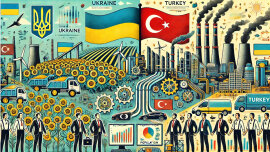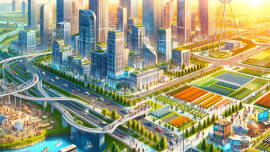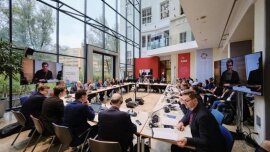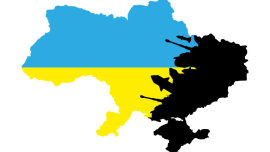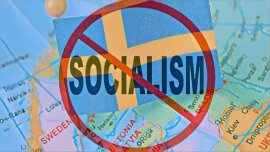What will change for Ukraine after the parliamentary elections in Germany? What is the essence of the UK’s game in Eastern Europe?
ANDREAS UMLAND, YURI ROMANENKO
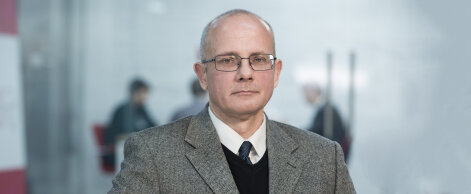
Yuriy Romanenko:
Hello everyone! Our guest today is Andreas Umland. He deals with issues of international politics, and many people here love this topic. Because international affairs always provide food for mind, and not as dull as Ukrainian politics.
Although I think that if a German man in the street were in Ukraine and watched Ukrainian politics, he would go crazy. Ukrainian politics can turn out to be quite funny and amusing for the outside man in the street.
Andreas Umland:
German politics is less understandable. There, of course, it is somewhat boring. I think that in recent years, domestic politics has become more interesting. But for decades it was very boring. This is one of the reasons why I live here in Ukraine. I’m just bored in Germany as a political scientist.
Yuriy Romanenko:
Last time we talked about Germany, and now we will also start with it. In Germany, there is an election campaign for the Bundestag, which is reaching the home stretch. The campaign is quite lively. Last time, when we talked about the parliamentary elections in Germany, we indicated that the Green Party had a fairly high chance of winning. But in recent weeks, the German press has been rocked by a variety of scandals involving the Greens.
How will this affect the course of the election campaign? Accordingly, how will this affect the political architecture of Germany, which Ukraine can get at the exit from the election campaign. A new balance of power will be formed in the political system of the FRG.
Last time you said that the greens have a chance to win. Now, as I understand it, these chances have diminished. Is the situation repeated again, when they also won earlier, and then at the end they were blown away.
Andreas Umland:
Yes. Such story has already happened. Then, in the polls, the “greens” were doing well before the elections, and then in the very elections they received a deplorable result. Now something similar is happening.
About a month ago, when we met, I think, I said that the Greens even have some chance for the post of chancellor, although it was not great then. However, it was still. Because the CDU (Christian Democratic Union of Germany – ed.) And the Greens were about the same level in terms of support. And now, in recent weeks, it has returned to the previous scheme, where the “greens” come second. There’s a big gap there. Maybe this will change until the end of the second half of September, when there will be elections. So far, it looks like the Greens will probably (if there are no big hesitation) take second place and no longer have a chance to become a chancellor.
Even earlier, the possibility of a left coalition was discussed. Meaning, these are the Green social democrats and the “left party”. In such a coalition, the Greens could also claim the chancellor, even if they have less popular support than the CDU. This is due to the fact that the CDU, as a center-right party, would not be part of the “left coalition”.
But now the arithmetic is such that the amount of support for all the “left parties” (“green”, social democrats, “left party”) is not enough to form a government.
Therefore, now if you look at all ideologies and at all possible options in arithmetic, then the most probable and most possible option at the moment is the so-called “black-green” coalition. That is, the coalition between the CDU, the CSU (Christian Social Union) in Bavaria is one bloc, and the Greens. Because other options seem unlikely.
There is also the so-called German coalition. This is because it would be either the colors of the German flag. That is, black center-right, red social democrats, and yellow liberal democrats. But, I do not think that the Liberal Democrats will agree to such a coalition. Because then they would simply be an instrument for continuing the current coalition between Social Democrats and Christian Democrats.
This is also an arithmetically possible option and ideologically – not entirely absurd option. This is the so-called coalition of Germany. But, it seems to me not probable, because the Liberal Democrats then would have lost their face in some way.
Therefore, now it looks like the Greens will probably be in second place and will be the “junior partner” in the coalition with the center-right, the CDU, and the chancellor in the current situation.
Yuriy Romanenko:
What is it fraught with for Ukraine? Because when we spoke a month ago, there has not yet been a meeting between Biden and Putin, a NATO summit, a meeting within the G7, a meeting with the leaders of the European Union.
These meetings showed that San Sanych Chaly said on my air: “the possibility of a thaw between the big West and Russia (arising from the contradictions between the States and China), Biden’s meeting with Putin, finalized the construction of a possible thaw, which will or will not begin to unfold … We will see this six months later, after the lag that Putin and Biden in Switzerland identified. “
And now for Ukraine, both new problems and new opportunities arise. Because the Nord Stream is actually completed and will be launched soon, the South Streams are also working. We see how additional gas volumes will be pumped to Hungary and Austria through Bulgaria, bypassing them.
If you say that a coalition is being created, where the Greens will be our partner, then, in principle, it will turn out that the policy that was under Merkel in its main features will remain. Or how?
Andreas Umland:
Firstly, I think that it has not yet been decided with Nord Stream. I have a different speculation here than other analysts who believe that it will be completed and launched in the near future.
If I look at the political situation, both in the EU and with the United States, I think that the closer the launch of this stream approaches, the more significant political social forces will be mobilized against this stream. Such forces are present in the USA, and in the EU, and even in Germany.
And therefore, I still cannot imagine that this flow will really work if there is no significant improvement in Russian-Ukrainian relations.
I think that this can happen if, for example, Donbass returns to Kyiv’s control. But if there are no significant shifts, I do not believe in it. Also, I do not believe in a thaw between the West and Russia. Now there are such signals: this meeting of Biden with Putin, Putin’s invitation by Macron (French President Emmanuel Macron – ed.) and Merkel to the summit of the European Union.
But as I already said, the mobilization of those forces that were against it immediately took place. And even the Dutch prime minister spoke out against this invitation of Putin to the EU summit. And now, again, there is a mobilization within the United States against the Nord Stream. And this is Biden’s rapprochement with Putin. This change of government, which will take place in Germany this autumn, will change little.
Although the Greens are critical. This is the only party that is unequivocally opposed to Nord Stream 2. And from Germany this is a very unusual position. Because in some ways it is an “anti-German” position. This is an important project for Germany or some people think it is important.
And the Greens are against this for various reasons. Of course, environmental considerations play an important role, but also geopolitical ones. It also plays a big role in the pro-Ukrainian moment. But they will only be the “junior partner” in the government. And the CDU will still defend this position within this coalition government (if there is such a government) in favor of Nord Stream.
But again, if you look at the entire political landscape (of the entire West), there are too many people who are seriously and decisively opposed to this project. So, I don’t think it will be launched yet. And this thaw will not happen.
In Germany (I think I spoke in the last program) the centrist parties do not differ much in their foreign policy orientations. These are some nuances, for example, the Green Party with Nord Stream is a bit of a dissident.
And for Ukraine, this is the biggest paradox of the Green Party (in principle, this has been the case for 30 years already), the fact that none of Ukrainian big parties has relationship with the Greens in Germany. Although this is the most pro-Ukrainian party in Germany. It stands for Ukraine’s accession to the European Union, against Nord Stream 2.
And recently, the co-chairman of the party, Robert Gabek, when he was in Donbass, even spoke in favor of the supply of weapons to Ukraine. This again is a very big departure from the German mainstream in favor of Ukraine.
Nevertheless, the CDU has several partners: Tymoshenko, Poroshenko, Klitschko (Kyiv Mayor Vitali Klitschko – ed.), Formerly Yushchenko. They have more than enough of these partners.
If I remember correctly, the Liberal Democrats have agreements with Anatoly Gritsenko’s Civil Position. There used to be a relationship between the Party of Regions and the Social Democrats in the EU.
I do not know if the Opposition Platform – For Life now has any relations with Western parties and with Western European parties (I did not follow this).
At the same time, the most pro-Ukrainian party in Germany (and perhaps one of the most pro-Ukrainian parties in Western Europe) does not have a partner.
Yuriy Romanenko:
I told you that this is due to our internal situation. Since we have an environmental agenda (despite the extreme urgency), especially in light of the fact that we had Chernobyl and many other things. And in some cities there is simply a disastrous ecological situation. Nevertheless, we have such a society and such a political agenda, where ecology is considered on a residual basis. Because in priority there are some other issues related to the economy.
Andreas Umland:
If Gabek is in favor of the supply of weapons, or if the party is in favor of Ukraine joining the EU, so that Ukraine today has the prospect of membership …
Yuriy Romanenko:
It’s not just ecology.
Andreas Umland:
There are many reasons. Another reason is that the Green Party (I advertise it a little here, because I have been a member of it for over 20 years) has had a great interest in Ukraine since the 1980s. After Chernobyl, people began to come here, they were from newly established “Green Party” (it was only created in 1980).
Already in the late 1980s, West German “Greens” began to come to the Ukrainian SSR (because of Chernobyl). Now there is also a young generation in the European and German parliaments who are very interested in Ukraine and stay here all the time.
The Böll Foundation (German political foundation) is close to the Green Party and is one of the most active in Ukraine.
There was once a Green Party in Ukraine, which seems to have had a relationship with the German Greens.
Yuriy Romanenko:
In 1998 they won: Kononov’s Green Party. But it had the same relation to the “green” as ours …
Andreas Umland:
There was some kind of relationship. But, I just remember that it was an insignificant party.
Yuriy Romanenko:
Yes. She it not flare up, 10%, in my opinion, gained on such an impulse.
Andreas Umland:
There was such a fake Green Party.
Yuriy Romanenko:
This was the 1998 election.
Andreas Umland:
Was it a real Green Party?
Yuriy Romanenko:
No. As happened very often, they used one brand or another, or some topic to parasitize on it. The topic appears and that’s it.
Andreas Umland:
But here, it seems to be a “Green Party” in Ukraine with a “green light”. There may be a blunder of the German Greens. I belong to this party, but not to its leadership.
Probably, it was worth, somewhere in February 2019, to come here when the Servant of the People party was created. If I were, I would go to their office and say: “Look, our 25 statements, European “green”. If you want to be a part of this, write in your program and you will be our partners.”
That is, I have the impression (it will be interesting to hear your opinion about this) that there was a certain moment when Vladimir Zelensky put forward his candidacy, when it was still not clear: who he would be in the ideological spectrum, what his party would be, and where he would stand on ideology.
Now it has already become more defined, something has already been established both for Zelensky himself and for this party. Maybe it’s too late now. Maybe it has already gone in a different direction.
Yuriy Romanenko:
You know, they change their ideological course so often that I would not be surprised that this is exactly the case when there is no need to despair.
Andreas Umland:
One of the big problems (it has always been) is the problem of “Samopomich” (party – ed.). There were contacts between the “Greens” and the “Samopomich”. And they were similar parties in spirit.
Because “Samopomich” withdrew from Euromaidan, Western German “Greens” withdrew from the 1968 student revolution. And the East German Greens came out of East Germany in the 1989 Velvet Revolution. Therefore, there was something that brought them together. But what later became like a “ball of discord.” How do you say?
Yuriy Romanenko:
Apple of discord.
Andreas Umland:
The fact is that Samopomich is still a traditionalist party.
Yuriy Romanenko:
They failed to become urban liberals, and as a result, they slipped into traditionalism. And such a Lviv blend.
Andreas Umland:
And maybe they have always been. And it was just a misunderstanding… They stand on the Family, the Church and the Nation…
Yuriy Romanenko:
They initially had such an impulse. Because, let’s say, they have created a pretty strong branch in Kharkov. Then it all came into dissonance with the regional influence groups that got the franchise and they simply could not create a normal party.
And Zelensky was not only underestimated then by the “Greens”. I spoke with Western diplomats in November 2018 and said that: “invite Zelensky now. Start inviting now, because later it will be too late. He has a very high chance to win. “
And they just didn’t understand it.
Andreas Umland:
So, you think it could still happen?
Yuriy Romanenko:
Yes. Look, it seems to me that the German Greens need to play on the motivations of our Greens.
Zelenskiy has no normal contact with Merkel. Moreover, as far as I know, Angela Merkel is generally quite critical of Zelensky and his political power.
We understand that the Green Party will take quite high positions anyway. If this coalition is formed, then for Zelensky and his party, it will be a good entry point through the Greens into the new configuration of political power in Germany. And the normalization of relations with the political elite in Germany.
Because we cannot say that our relationship is in some bad state. But they are, it seems to me, in a rather chaotic state. This is because our side has a very poor understanding of how your system works. And there are no friendly relations with representatives of the top elite.
By the fact that, for example, Merkel or German politicians have better relations with Klitschko than with Zelensky. Because they understand him more.
Andreas Umland:
In principle, there is (I have not researched) a rather long history of relations between Ukrainian parties and Western parties. As far as I know, there have always been some contacts and relationships not only with Klitschko. Both Tymoshenko and Poroshenko are officially included.
Yuriy Romanenko:
Through the European People’s Party.
Andreas Umland:
They seem to be called observers there. And Gritsenko’s party seems to be even a member of this liberal alliance. And the pro-Ukrainian German party itself has no partner here. This is the whole trouble.
And here it is not just a question of who sympathizes with whom. And what are the ideological grounds?
And if now, for example, the majority of the “Servant of the People” is included in this inter-party Alliance “For the Family”. It even seems to have come from Servant of the People. But it can hardly play well for them.
Yuriy Romanenko:
This means nothing. It’s just herd instinct. Someone had this instinct working for them, and they all ran together. Our politicians, they work in this style.
Andreas Umland:
Maybe so. I can only say (as far as I understand my party), the Greens are not against traditional relations. But, they would not want the state to attribute its personal life to people.
Whether they want to live patriarchal, matriarchal, or homosexual, or civil, or Swedish, or whatever kind of family … It means everyone can live as he wants. Therefore, it is left-liberalism.
Yuriy Romanenko:
I think. You will find more than enough supporters there.
Andreas Umland:
It seems to me that for the “Greens” this traditionalism has always been the biggest problem in Ukraine: the Family, the Church. The Maidan proclaimed “freedom is our religion”. But, it looks more like: our religion is our religion. Therefore, there were some contacts between Samopomich and the Greens. This revolutionary spirit, something new, “we will build”, and then it turned out – we won’t build. Family, traditionalism, relationships – it should be included.
And this will not work with the “Green”. There, after all, it is a feminist party, an individualist, leftist party. It was also once a pacifist party. This is a cosmopolitan party.
Yuriy Romanenko:
For Ukraine, it would be a party of urban classes – the middle class of large and medium-sized cities. But, today, in fact, it does not exist. And this is a problem, because there should be such a party. But I think that eventually this problem will be solved.
Due to what we see, there is no such stratification as in Germany. As you rightly said, the ideology of the leading parties there is very close in many respects. Therefore, the battle is being waged for some niche segments. In which these differences allow you to attract some groups of the population, and to mobilize them.
Andreas Umland:
In foreign policy, the German parties are very close. But in terms of core values, there is not as much polarization as in the United States. It sometimes looks like two different nations. That is, they just hate each other.
Yuriy Romanenko:
I would say a kind of a religious ecstasy.
Andreas Umland:
And they both hate each other. It is already easier for them to communicate with similar people abroad than with their own, between Americans.
We haven’t come to that yet. We also have extreme parties in Germany, like the “Left Party” or the “Alternative for Germany”. These are also party poles. Few people want to communicate with this “Alternative for Germany”. But the centrists, fortunately, are still communicating with each other in Germany.
But there are differences in values. Some coalitions are difficult to form. Therefore, there is a problem for the “Greens” in Ukraine. And the paradox is that they are the most pro-Ukrainian party.
Yuriy Romanenko:
Let’s take a look at other aspects of international politics.
Recently there was an incident with a Defender (British destroyer ship), which was in the Black Sea off the coast of Crimea. It blew up the world information space. And there was a lot of attention in Ukraine. How do you look at this situation?
Because I see in this an attempt by Great Britain to designate its zone of interests here, its special position in the region of Eastern and Central Europe. And especially in the context of the fact that they left the European Union and are looking for their place under the sun in a new capacity – as a post-European Great Britain.
Andreas Umland:
I can’t see any neo-imperial impulse behind this. In this whole story I liked the fact that (as far as I understand), this ship went on a direct route from Odessa to Batumi, and did not turn off.
The symbolic meaning of all this is that it was the fulfillment of the Budapest Memorandum. Because then Great Britain recognized the border of Ukraine, and it behaved accordingly in this conflict.
If this ship changed course and made a hook to go around this zone (which Russia designated for itself as a national territory at sea), then this could be regarded as Britain’s departure from the Budapest Memorandum. Then Great Britain would no longer recognize the borders of Ukraine.
Yuriy Romanenko:
This is such a one-time act. Because we understand that the next time the Russians can actually shoot at the ship. Moreover, they make corresponding changes to their regulations. Therefore, this is a serious symbolic act, no doubt.
Andreas Umland:
Maybe someday this still small episode will be considered a certain key moment. I think the British are going to be more careful now. They certainly do not want a military clash. I liked the fact that they simply did not change their way (as if these were Ukrainian waters through which they passed along the course and did not change). It means that this document of 1994, after all, means at least something.
Yuriy Romanenko:
What role can Britain claim here in Ukraine? Because it does not have the same influence as the United States or China. We understand this very well. This is undoubtedly a powerful European power, but this is no longer the same empire (even in the 60s or 70s of the last century).
Andreas Umland:
Yes, this is certainly not an empire. Although I studied there, I even worked there. To be honest, I am also somewhat surprised by this “pro-Ukrainian” Great Britain in recent years.
Because there is also a rather strong pro-Russian fraction in Great Britain. There is this famous Londongrad, where Russian influence and many Russian emigrants. Nevertheless, in recent years their position seems to me even tougher (maybe this is just such a personal impression after the UK left the EU). And Great Britain is such a “hawk” now. Even in some ways tougher than the United States towards Ukraine, which makes me happy.
There just seems to be some kind of sympathy. I also think that this is due to what the Russians have done there. This is the murder of Litvinenko (by radioactive isotopes), “Novichok”. There is already atomic isotopy and chemical weapons. So far, Russia and England have not used biological weapons.
There was also a series of murders of Berezovsky’s friends. Not only did he die very strangely, but all his entourage perished in various ways over few years. And all this was discussed.
And due to their traditions, they have become such “hawks” and now cooperate so well with Ukraine. Ukraine should take advantage of this and it should work on such bilateral relations.
Turkey is in many ways the other partner now. Although it has such an ambivalent attitude towards Russia. Although it also supported Ukraine in many ways. And Ukraine has no choice but to work with different countries in such relations. Because, unfortunately, Ukraine does not have a chance of joining NATO and the EU.
Yuriy Romanenko:
These are the latest statements, an exchange of barbs with European countries, starting with Danilov’s statements about France and Germany. Regarding their responsibility for what has happened since 2014. And ending with statements about the fact that Ukraine began to say: “So tell me, what are the criteria for joining NATO, so that we can clearly observe, so that we can fix it.” And they answer us: “No. There are no such criteria ”.
It is obvious that the conversation between Ukraine, Germany and France today is shifting into different direction than it was before.
I think this is good, because we have to get out of the situation when we introduce this “straw bull” and it is not clear what, it is not clear where we are moving.
Let’s better put it this way: you need clarity from all sides. Then everyone understands: here we can achieve our interests, but here we cannot. And if we cannot, then we switch to building bilateral relations with the same Germany or Great Britain, or Turkey, the States, with anyone. If it is profitable for us.
It seems to me that a certain qualitative transition has emerged. A way out of the romantic illusions of 2014, when everyone thought that the West would help us.
Andreas Umland:
I usually say “yes” in such cases. This is the way to act in relation to NATO, because it is a military alliance. Of course, while Ukraine is at war with the largest nuclear power in the world, this military alliance will probably not accept Ukraine.
The European Union is another case. This is not a military alliance. There, the question of joining is less political (it is more technical). If the agreement on the Association is fully implemented, there are reforms on decentralization, anti-corruption, permanent residence for EU citizens, then the European Union will find it much more difficult to renounce Ukraine’s membership than NATO.
Because NATO can always say: “but, you see, you … You should have entered before this conflict. We cannot take a country that is in conflict. Because then we just become part of this conflict. “
And the European Union will not be able to do this so easily. It will then lose its face. I do not exclude that this may happen, but there will be a very strong argument. It should be a different Ukraine than it is today. If it is ready, and it can be compared with a country like Croatia (at the time when it joined the EU).
If Ukraine could say: “You see, look at Croatia when it joined, and at us. We are at the same stage now. We would like to join. “
I think there is a different question in the European Union. Many people believe that the EU and NATO are related and similar organizations. In fact, the essence of these organizations is very different. And, oddly enough, I think that the chances of a mid-term entry into the European Union are higher than those of NATO.
Yuriy Romanenko:
I think that Ukraine in the medium term (5-10 years) is unlikely to come close to NATO and the EU.
It seems to me that we have come to the threshold when we have taken everything we could. Further, we need to develop the logic of bilateral relations, to rely on it and on building a powerful economy and increasing the efficiency of state institutions. Because it is pointless until we solve these problems.
Andreas Umland:
This, I think, will not solve the problem with NATO. Here is a sad example with Georgia, which was ready to join for a long time (even before 2008, before the Russian-Georgian war), but could not join. And where for many years the majority of the population is in favor of joining NATO. There is only a young phenomenon in Ukraine. But they don’t even have a MAP yet.
And with the EU, there is, indeed, an internal reform. It really is a real step towards joining, and there is a chance. In fact, the EU treaty also contains an article (I don’t remember its number now), which is similar to Article 5 of the Washington Treaty.
It is actually a defense alliance. It is not a military organization like NATO, but it is also a defense alliance. This also significantly increases the country’s security.
If it was a law on de-oligarchization, if it is all serious, in the end, if decentralization is serious and the implementation of the Association Agreement too. If all this will seriously advance, then I think the closer to the implementation of the whole agreement on the Association Ukraine moves, the more Ukraine can claim it.
And there will be a number of advocates for Ukraine. In the EU, it will receive the prospect of membership, then it will start agreements, then it can, probably, join quite quickly. Because it no longer needs to embody everything that countries used to embody during the accession negotiations. Now many things that other countries, upon joining, were supposed to implement, are already being implemented within the framework of the Association Agreement.
Yuriy Romanenko:
Against this background, how do you assess the statement of Arakhamia (head of the Servant of the People faction David Arakhamia – ed.) on China?
Because it caused a huge amount of memes and giggles. But it seems to me that very many people in Ukraine simply do not at all realize the role that China plays today in the modern world and in the international system of relations. And, as far as, it has huge influence, including our region.
Because we see that the Chinese very successfully penetrate through Serbia, Greece, Hungary, Italy, and work with the EU.
And what are the main problems you see if Ukraine starts to somehow systematically build the Chinese agenda of relations (although it seems to me that under the current Administration, it is hardly possible)?
Andreas Umland:
I think China is probably one of the big puzzles for Ukrainian foreign policy. Because it is a potentially interesting partner for Ukraine. And I suspect that for China, Ukraine, in its location and resources, is an interesting partner.
But, for Ukraine, the first question, after all, is not an economic one, but a question of security. In this regard, the United States plays an important role for Ukraine, while the United States is in a confrontation with China. And to be honest, I don’t know how to solve this.
I also do not know China well enough to competently answer this. I know that there is some kind of difficult-to-solve contradiction in interests.
I can honestly say that although I do not like the political system of China at all. What is happening with these British or Uighurs is the tension between China and Taiwan, this is not very “appetizing”.
But Ukraine, of course, needs investors and partners like China. At that Ukraine, on the other hand, cannot lose the United States as an ally. There are people in the United States who, alas, consider the confrontation with China to be the most important topic of American foreign policy. And if Ukraine here goes to rapprochement with China, an anti-Ukrainian campaign, which already partially exists, may start in Washington.
Yuriy Romanenko:
How does it work?
Andreas Umland:
Now a series of articles has appeared in the influential Washington-based newspaper The National Interest, where they openly say that the United States should not support Ukraine. Because Ukraine is not worth it. And it is not democratic enough, not developed enough, not reformed enough.
Therefore, it is too expensive and not a suitable partner for the United States. And if now there was still a rapprochement between Ukraine and China, then of course such voices would receive even more weight.
Yuriy Romanenko:
When I read The National Interest, it also has such a rather odious fame. Because it is clear that they are cooperating with the Russians. In short, there is some form of relationship that clearly comes through from what they write. Moreover, it did not start a year or two ago.
Andreas Umland:
Well, partly, probably so. And they published Putin himself. But I would not exaggerate this Russian factor here. There is simply such a form of so-called realism, which says: “why do we need this Ukraine, we have our own national interests. For us, Ukraine is a trifle. “
And for the United States, the main problems or main partners are the great powers. And why do we need small Ukraine running between our legs.
Yuriy Romanenko:
As a matter of fact, this was a significant part of the agenda at Putin-Biden meeting. They spoke in the same spirit as the great powers used to speak.
Andreas Umland:
So far, I am neutral about this meeting. It will be interesting for me, what will come of it. It was a little odious.
This could be explained by the fact that there was a concentration of Russian troops on the Ukrainian borders, and it was a kind of lightning rod.
But once again, I don’t think there will be some kind of thaw. With France, Germany (in relation to these countries), I have more suspicions. The USA I don’t think so. They just have their own Russian-American confrontation. It seems to me that it was also a big mistake for the Russians that they started this interference into the internal affairs of the United States.
This is a huge geopolitical mistake for them. Therefore, I do not think there will be a thaw. I think this is not the problem for Ukraine. The problem is rather China, what to do with it. Especially if the Chinese are knocking here. But I can’t see them actively knocking at the door here.
Yuriy Romanenko:
No.
Andreas Umland:
Then there is no problem.
What Arahamia says is just a speculation. But if they start knocking here (it was under Yanukovych, there were these plans), if they say that they could invest a billion here, or a billion there, then it will be a huge puzzle. How to explain this to the Americans, I do not know. Maybe the Americans will somehow understand. I think the Europeans have their own attitude towards this.
Yuriy Romanenko:
Germany, for example, has excellent relations with China.
Andreas Umland:
There are no problems there. I think the Russians would really not like it if the Chinese entered here. But the problem is, the Americans won’t like it also.
But of course, you need to be careful with the Chinese. There are different experiences of different countries with them. And some have good experience and some not too good.
Yuriy Romanenko:
Yes. Don’t put your finger in their mouth. This is true. Thanks Andreas for such a detailed conversation. Not the last one.
Andreas Umland:
I would like to hear your opinion also.
Yuriy Romanenko:
Ask questions! Thank you! Until next time! Bye!
















